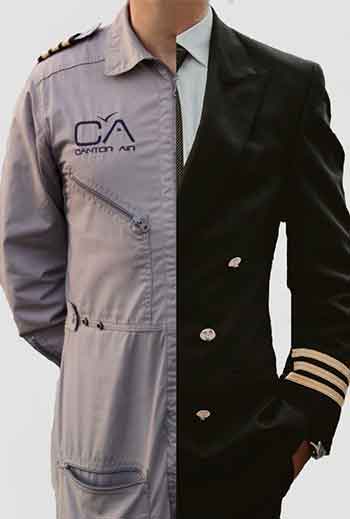The course that allows you to become more confident in unusual flight situations and thus to prevent, recognize and deal with those potentially hazardous flight conditions.
Info
- Theory: 3 hrs
- Practice: 5 hrs
- Duration: 3 days
The UPRT (Upset Prevention and Recovery Training) course enables pilots to become more confident in unusual flight situations and thus to prevent, recognize and deal with those potentially hazardous flight conditions. The Advanced UPRT course is a mandatory requirement, for commercial license holders, to access Type Ratings as per EASA regulation FCL.745.A.
Pre-requisites for admission:
- Possession of PPL (A) license or higher
- Be in possession of mental and physical fitness certificate issued by an Aviation Medical Examiner (AME), based on the type of license held.
Course Schedule:
Total hours of theoretical instruction: 05;00
Total hours of practical instruction: 03;00
Theory:
Theory part consists of the A-UPRT course that ATO offers in-person for conducting 5 hours of theoretical instruction. The A-UPRT program is specifically designed to meet three distinct areas/goals:
- increased awareness of potential threats from events, conditions or situations;
- effective avoidance - to early identify a potential condition causing disturbance;
- effective and timely recovery - from a disturbance to restore the aircraft to safe flight parameters.
Flight Program:
The flight program includes no less than 3 hours of training on MUDRY CAP10C aircraft from the school's fleet. The hours cover specific unusual attitudes and LOCI prevention.
Scheduled Exams:
No theoretical or practical exams are scheduled for this training. In the final flight mission, the student must demonstrate proficiency and ability to recover from a disruptive or potential LOCI situation.
Course Duration:
The duration of the course is normally a minimum of 3 days but can be adapted to the needs of the candidate.
Taking advantage of the great potential of CAP 10Cs, Cantor Air flight school has set up, starting as early as 04/09/18, the program and the start of certification to Upset Recovery Training according to ICAO 10011 requirements, distinguishing itself once again, as one of the first European ATOs to obtain such certification. From 2020, the course is also offered according to EASA PART FCL.745a (UPRT ADVANCED) certification.
The expression is derived from the English "upset"-which indicates a situation of turbulence, capsizing or overturning to which the aircraft may go- and from "recovery",which instead indicates the subsequent action of regaining (control) by recovering and/or ascending the craft. In a nutshell, Upset Recovery represents that set of techniques for putting the aircraft back on the right trajectory from the unusual (i.e., abnormal) attitudes in which the pilot may find himself.
The NASA Aviation Society Program and the U.S. Federal Aviation Administration (FAA) have established the Airplane Upset Recovery Training Aid program as early as 1996, implementing it in 2004 and 2008 with High Attitude Operations: these additions were born for the special situations that can happen during high-altitude performances, such as aerobatics.
These recommendations, as well as by the world's major airlines, have also been transposed by individual states and now become mandatory in European Union countries, for all commercial license holders who will start a TYPE RATING, as of December 20, 2019: ICAO (International Civil Aviation Organization) document 1011 is one more tool to protect professionals and aviation enthusiasts, teaching them to recognize abnormal situations. Effective development of the UPRT program and support of regulatory frameworks requires a comprehensive integrated approach to ensure standardization of knowledge and skill levels within the Cantor Air pilot community.
This integration effort includes the following components:
(a) 5 hours of lecture on aerodynamics, LOCI (LOSS OF CONTROL IN-FLIGHT) and specific in-flight situations;
(b) minimum of 3 hours of UPRT flight time on CAP 10 covering specific unusual attitudes and LOCI prevention.
There are no theoretical or practical exams for this training. In the final flight mission, the student must demonstrate competence and ability to recover from a disruptive or potential LOCI situation.
Why choose us
Want to Know More?
The Cantor Air team is ready to answer any questions regarding our services and offers.













